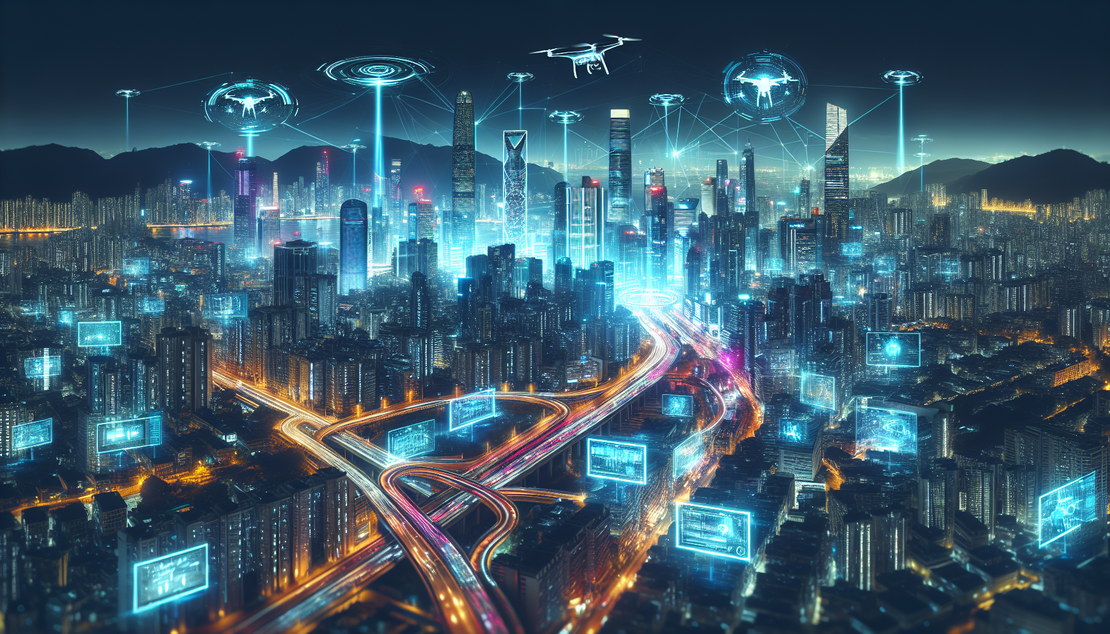
The Future of AI-powered Marketing Automation: Strategies for Success
- Rajdeep Barad
- Ai powered marketing automation , Ai strategies , Enhanced customer engagement , Ai tools
- March 4, 2025
The Future of AI-powered Marketing Automation: Strategies for Success
The Evolution of AI in Marketing Automation
Marketing automation has come a long way from basic email blasts to sophisticated, AI-powered strategies. In the past, marketers used automation tools to streamline repetitive tasks and send targeted messages. However, the introduction of artificial intelligence revolutionized marketing automation by enabling machines to learn from data, predict outcomes, and adapt in real-time.
Pro Tip: To stay ahead in the AI marketing game, keep a close eye on emerging technologies and trends. Experiment with new AI tools and platforms to understand their potential impact on your marketing strategies.
AI-powered marketing automation provides several benefits, including increased efficiency, personalized customer experiences, data-driven insights, and improved campaign performance. Companies like Amazon and Netflix have successfully leveraged AI to offer personalized product recommendations, tailored content, and predictive analytics to enhance customer engagement and drive conversions.
Understanding the Role of AI in Marketing Automation
AI plays a crucial role in marketing automation by powering personalization, customer segmentation, predictive analytics, chatbots, and behavioral targeting. By analyzing vast amounts of data, AI algorithms can identify patterns, preferences, and trends to deliver relevant and timely messages to customers.
Pro Tip: Implement AI-driven customer segmentation to create targeted campaigns based on behavior, demographics, and interests. This strategy can significantly improve engagement and conversion rates.
Chatbots are another essential AI tool for marketers, enabling real-time interactions with customers, providing instant support, and guiding users through the sales funnel. Behavioral targeting uses AI to deliver personalized content, product recommendations, and offers based on individual browsing behavior and purchase history.
Key Strategies for Implementing AI-powered Marketing Automation
Successful implementation of AI-powered marketing automation requires a strategic approach. Start by collecting and analyzing data to gain valuable insights into customer behavior, preferences, and market trends. By understanding your audience, you can create targeted campaigns that resonate with potential customers.
Pro Tip: Integrate AI tools with your existing systems, such as CRM software or email marketing platforms, to streamline processes, automate tasks, and improve efficiency. This integration can enhance data accuracy, campaign effectiveness, and overall customer experience.
Experimentation is key to optimizing AI strategies. Conduct A/B testing to compare different approaches, messages, and designs to see what resonates best with your audience. Continuously monitor and optimize AI algorithms to ensure they align with your marketing goals and deliver the desired results.
Challenges and Considerations in AI-powered Marketing Automation
While AI has transformed marketing automation, it also comes with challenges and considerations. Data privacy and ethics are major concerns, as companies must ensure they use customer data responsibly and comply with regulations such as GDPR. Transparency in AI decision-making is essential to build trust with customers and avoid bias in automated processes.
Pro Tip: To address data privacy issues, implement robust data security measures, obtain explicit consent for data processing, and be transparent about how AI algorithms use customer information. Building trust with your audience is critical for long-term success.
Integrating human creativity with AI automation is essential to create compelling campaigns that resonate with customers on an emotional level. While AI can analyze data and optimize campaigns, human input is still needed to develop creative strategies, innovative content, and unique brand experiences.
Best Practices for Leveraging AI in Marketing Automation
To maximize the benefits of AI in marketing automation, align your AI initiatives with your business goals and objectives. Invest in staff training to ensure your team has the skills and knowledge to leverage AI tools effectively and efficiently. AI can empower marketers to engage with customers across multiple channels and touchpoints, creating a seamless omnichannel experience.
Pro Tip: Measure the ROI and performance metrics of your AI campaigns to assess their effectiveness and identify areas for improvement. Use data analytics to track key metrics, such as conversion rates, customer lifetime value, and engagement levels, to optimize your AI strategies and drive business growth.
Ready to transform your digital vision?
Get in touch with us to explore how our cutting-edge solutions can elevate your business to new heights. Contact us today!
Get in Touch


